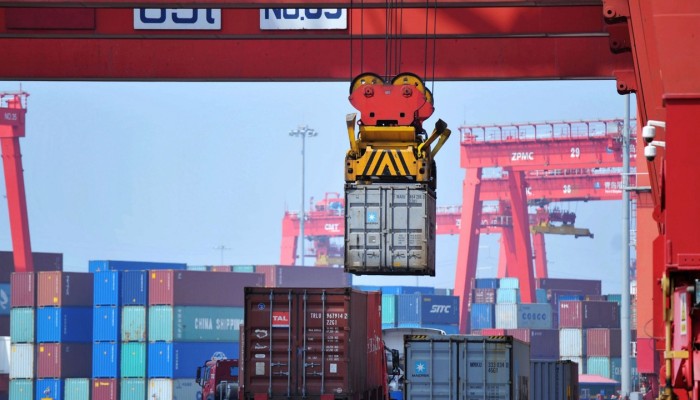How about this, in the South China Morning Post?
Isn't it annoyong that the government in the Motherland (China) treats its residents like children?
Time for a reality check for China's wishful US trade war thinkers, Chinese professor warns
China has risen within the US dollar system but also been weakened by it, academic says
A leading Chinese finance professor has warned against overblown claims about China's ability to take on the United States in a trade war, adding that it could be the start of a bigger rivalry lasting more than half a century.
In a graduation speech in the northern Chinese city of Changchun in Jilin province on Saturday, Li Xiao, dean of Jilin University's school of economics, cautioned against "wishful thinking" about China's economic strength and influence, saying the country was overreliant on the US dollar system."China's rise is essentially a status rise within the dollar system," Li said. "For four decades, we have benefited from the dollar system and we have also became the system's main supporter as well as its risk bearer," he said."Some scholars tend to interpret the conflict between the US and China within the confines of the trade war ... Some even said the US would definitely lose the trade war and China would win it. I think that's all wishful thinking and goes against common sense."The address was widely shared online after being posted on the school's social media account, and echoed other warnings about China's international status.Late last month, a senior editor of China's official technology publication said the country was fooling only itself in thinking it would soon overtake the US as a world leader in science and technology. And the flagship Communist Party mouthpiece People's Daily also pushed back against articles boasting "the US is scared" or "Japan is awed" by China's achievements, saying they were hollow and helped other countries find excuses to accuse Beijing.Li said China was heavily dependent on the United States for exports, core manufacturing technology and imports of soybeans, but more than anything it was weakened by its reliance on the US dollar.And that exposure would grow as China's underlying economic conditions declined.China's international payment fundamentals have already worsened this year, to the point where it now buys more goods and services than it sells to the rest of the world.China is also the US' biggest foreign creditor with at least US$1.19 trillion of US Treasuries. Those holdings had been a big buffer against capital outflows from China and offloading them would disrupt the country's financial stability, particularly as its foreign reserves fall and foreign debt repayment obligations grow.In addition, most global trade is financed in the dollar. According to financial transactions service Swift, the yuan accounted for just 1.16 per cent of international payments in May while the dollar still made up 42.7 per cent."The goal of the yuan's internationalisation is not to replace the dollar. The dollar system is irreplaceable in the short term. Our goal for the yuan is to reduce the risk and cost under such system," Li said.He said the biggest issue for China was that the world's most powerful country had overtly treated it as its main competitor and used an economic war in peacetime to try to contain it."The conflict between two major powers could go on for at least 50 years or even longer. Everything happening today is just a curtain raiser of history," he said."For more countries, the trade war is a lose-lose game economically. But for big countries, the key is who can afford to lose. History has proved that competition between big countries, particularly the No 1 and No 2, is not just about the economy or economic interests but more of a showdown of international politics for national interests."Li argued that China should be clear-headed about its technology gap with the US and the unsustainability of trading market share for foreign technology to drive growth."But a more important challenge is ideological: this conflict could potentially go on for a long time so in that time will we continue to identify calmly the big gap between China and the US and learn from them humbly, or will we embrace a very strong anti-US nationalism and even boycott everything from the US?"
